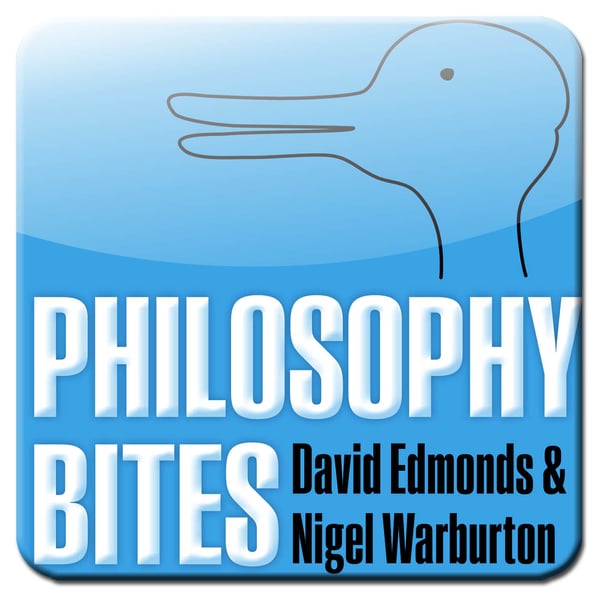Stephen Mulhall on Film as Philosophy
Philosophy Bites
Nigel Warburton
4.6 • 2K Ratings
🗓️ 3 February 2008
⏱️ 18 minutes
🧾️ Download transcript
Summary
Transcript
Click on a timestamp to play from that location
| 0:00.0 | This is Going to the movies is usually both more fun and less taxing on the brain than |
| 0:17.8 | doing philosophy. Oxford University Stephen Mulhall however sits in the dark auditorium with his philosophical antennae are tuned |
| 0:26.0 | and quivering. |
| 0:27.2 | His book about philosophy and film argues that some films can themselves be genuinely philosophical, not just in the sense that they may have |
| 0:35.0 | interesting things to say about the nature of film itself, but much more broadly, they can contribute |
| 0:40.3 | to the whole range of traditional problems, be it free will, personal identity, |
| 0:45.0 | or, as in the futuristic blockbuster, Blade Runner, our approach to mortality. |
| 0:50.0 | Yes, Blade Runner. |
| 0:52.0 | Stephen Morehool, welcome to Philosophy Bites. |
| 0:54.0 | It's nice to be here. |
| 0:55.0 | Now the topic we're focusing on today is philosophy and film. |
| 0:59.0 | When philosophy deals with film, it usually comes up as the philosophy of film but you do something |
| 1:05.1 | quite different I wonder if you could outline roughly what your position is |
| 1:08.0 | here sure well I guess it might help to explain a little more about what philosophy of film normally looks like. |
| 1:14.4 | And here it's really philosophy doing its normal thing of coming along to some other distinct |
| 1:19.9 | independent part of human life and starting to raise difficult questions about the assumptions |
| 1:25.4 | and the conceptual resources that are being taken for granted. |
| 1:29.0 | So in that sense, philosophy of film is constructed in exactly the same way as philosophy of history or philosophy of |
| 1:36.1 | language. One looks at one's experience of films, one looks at the ways in which films are |
| 1:41.3 | made, the kind of objects they are, and one asks how is it so much |
| 1:46.0 | as possible for there to be representations on a screen of real objects that nevertheless |
| 1:52.0 | aren't present to us. |
... |
Please login to see the full transcript.
Disclaimer: The podcast and artwork embedded on this page are from Nigel Warburton, and are the property of its owner and not affiliated with or endorsed by Tapesearch.
Generated transcripts are the property of Nigel Warburton and are distributed freely under the Fair Use doctrine. Transcripts generated by Tapesearch are not guaranteed to be accurate.
Copyright © Tapesearch 2025.

